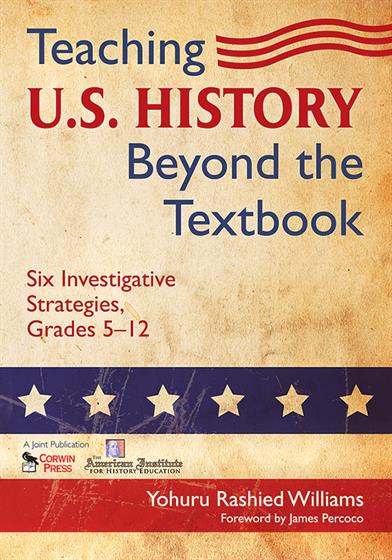Foreword by James Percoco
Acknowledgments
About the Author
Introduction: History Education: A Matter of Life or Death?
1. Haunted History: Revealing the Hidden Past
Discovering Haunted History
What Is Haunted History?
Constructing HOST Files
- HOST File Numbers and Clues
- Haunted History as Assessment Pieces
A Sampling of HOST Files
- HOST FILE #1851-1852-1887
- HOST FILE #1644-1718-1987
- Haunted History Priority File: "13 Ghosts"
Questions for Review and Reflection
References
Resources and Further Reading
On the Web
2. The CSI Approach: Making Students Detectives
What Is the CSI Approach?
Constructing Cold Cases
- The Difference Between Haunted History and CSI
A Sampling of Cold Cases
Questions for Review and Reflection
References
Resources and Further Reading
On the Web
3. Historical Fingerprinting: Analyzing Primary and Secondary Sources
Learning to Think Like a Historian
What Is Historical Fingerprinting
Constructing a Historical Fingerprinting Kit
A Sampling of Historical Fingerprinting at Work
Fingerprinting the Declaration of Independence
Fingerprinting the Preamble to the United States Constitution
Fingerprinting Political Cartoons
Dusting Secondary Sources
Questions for Review and Reflection
References
Resources and Further Reading
On the Web
4. The Intersection: Reconstructing Historical Accidents
What Is the Intersection?
- The Intersection as Accident Reconstruction
- The Intersection and Teaching Core Democratic Values Through History
Setting Up the Intersection
A Sampling of Historical Intersections
- PFDA: A Progressive Era Intersection
- Lincoln and Fremont at the Intersection
- The Emancipation Proclamation in the Intersection
- Eisenhower and Warren at the Intersection
- Gun Control in the Intersection
Questions for Review and Reflection
References
Resources and Further Reading
5. Meet SCOTUS: Engaging Students in the Drama of Court Cases
What Is SCOTUS?
- Encouraging Critical Thinking
Using SCOTUS
- Historical Figures on Trial
- The Scales of Justice: Weighing the Evidence
- "I Object!" Setting the Rules for Mock Trials
A Sampling of Court Cases
- Murray v. the State of Maryland
- The Case of Francis Terranova
References
Resources and Further Reading
On the Web
6. ESP + C: Providing a Student Mental Organizer and Writing Strategy
What Is ESP+C?
- The Three Types of Historical ESP
- ESP+C as a Mental Organizer
Using ESP+C
A Sampling of ESP+C
- Analyzing King's Letter From a Birmingham Jail
- Recognizing Washington's Contributions
- Understanding Historical Terms
- Correlating With the national Social Studies Standards
- Using ESP+C With the KWL Strategy
- Analyzing King's Letter From a Birmingham Jail
- Recognizing Washington's Contributions
- Understanding Historical Terms
- Correlating With the National Social Studies Standards
- Using ESP+C With the KWL Strategy
Questions for Review and Reflection
References
Resources and Further Reading
On the Web
Conclusion
References
Further Reading
Index
- Murray v. the State of Maryland
- The Case of Francis Terranova



